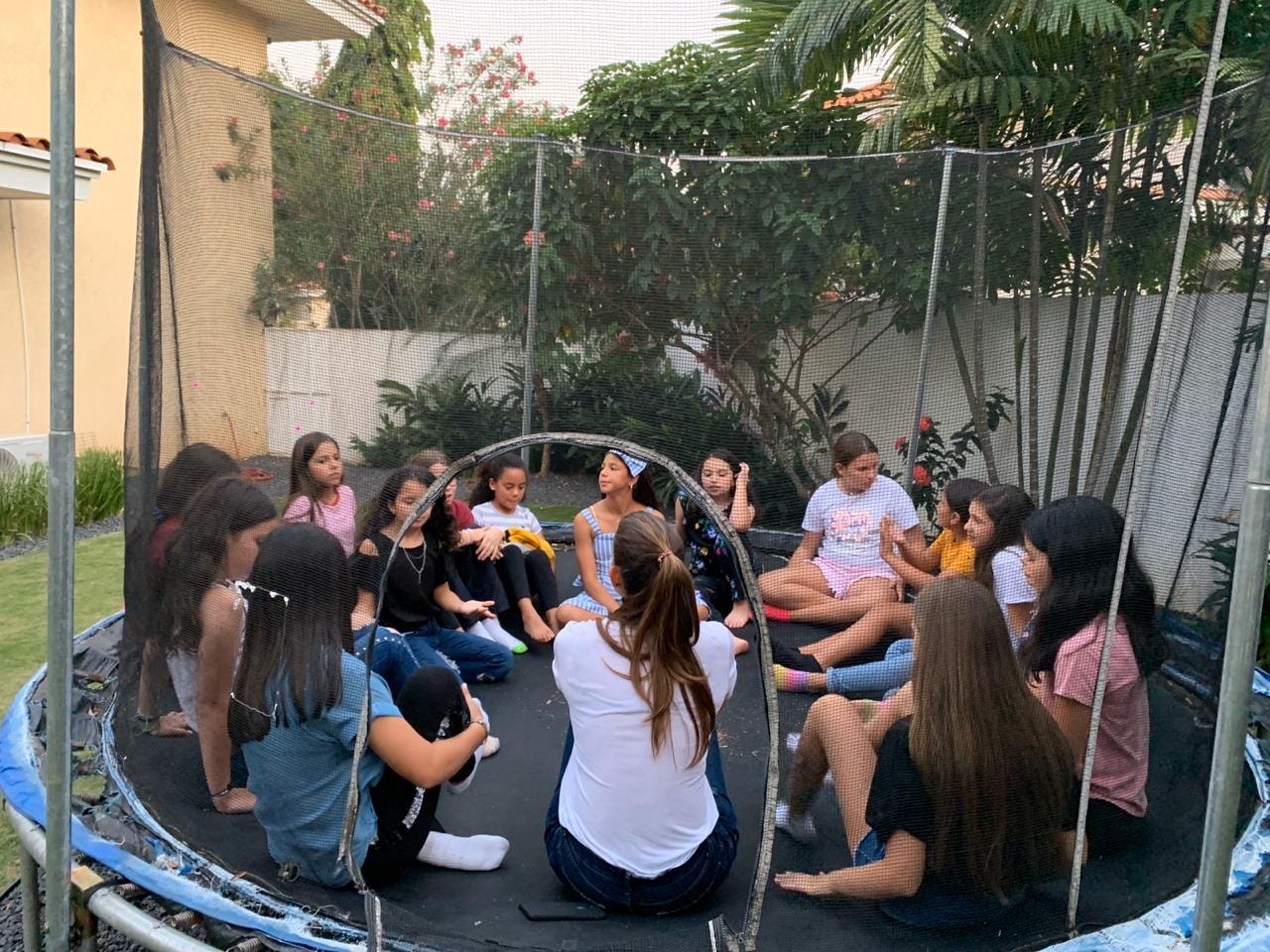Fab Fridays 13: Learning By Doing
Making kids the directors and managers of their learning process.
Hey Everyone!
Greetings from Panama.
I haven’t been writing much these past two weeks because I was preparing to conduct the Pilot of Write of Passage Summer Camp!
Last week, we had our first group of 16 campers ages 8-12 from different countries— Brazil, Panama, Argentina, Canada, the US, India, and Pakistan.
Campers started and finished a project of their choice in just five days. They spent the first two days identifying a problem and exploring their interests, and the last three ideating and creating a solution that they presented to the group.
It never ceases to amaze me what kids can accomplish when we encourage them to dig deeper into the things that matter to them. Campers made comic books, stop motion videos, games out of recycled materials, YouTube videos to raise awareness about animal cruelty, cooking tool prototypes, a scratch animation on recycling, a newsletter to save dogs in Panama, and a recipe for healthy smoothies that actually taste good.
We will run a second pilot mid May for 25 kids ages 9-11. We will provide more information in the upcoming week and open enrollment soon. Stay tuned!
Background of Summer Camp
The idea behind Summer Camp sparked from different conversations I had with kids about the things they like to learn about, their curiosities, and what matters to them.
Turns out, a GREAT divide separates kid’s interests from their academic studies. Schools typically ask kids to care about 7 specific subjects and then tests their academic aptitudes on those fields of study.
But kids have their own interests.
They are interested in magic, dancing, and video editing. Some like action photography, beat-making, cartooning, and fashion design. Others like architecture, pet care, and paper crafting. Some like creative writing, woodworking, bird watching, and makeup artistry. Others like to cook, code, and build things with LEGOS. Kids like to come up with their own questions and problems they care about and find answers that satisfy them.
“The stuff we learn in school has little to do with our real life. It doesn’t really matter. What matters is we pass the test so we can go on to the next grade,” said one of my former students.
Kids feel like school counts, but that it doesn’t really matter. This is tragic.
So the question is, what can we do to create a new story, a new way of thinking about learning that values our kids’ curiosity?
Inspired by the Makers Movement, the Design Thinking process, and Project Based Learning practices, we came up with the first version of Summer Camp: a virtual space where kids from all over the world come together to explore and develop their own ideas in a fun way and work on projects they care about. In Summer Camp, kids are the directors and managers of their learning process.
Here are some takeaways from our pilot:
“Making” allows kids to express creatively what’s in their heads. They can bring their ideas to life through writing, sketches, videos, or cardboard models. Kids don’t need 3D printers, laser cutters, or sophisticated tools to experience the magic of learning through making.
The magic happens when kids engage in projects that are meaningful to them. It makes their learning feel real, especially when they share their projects with others.
The best creations stem from a specific question or impulse the kid has, imposed by no one but their own curiosity. Kids have the best learning experiences when they start with a problem and then create.
When kids engage in a project they’re interested in, they work hard on it! They do this without anyone asking them to. They also feel accomplished when they finish.
Try something different at home
For parents that continue to worry that their kids are falling behind because they are not attending “formal schooling,” remember that real learning can happen anywhere and in different ways. Use this time to help them discover their interests and take it from there.
As a guide, try asking your child:
What do you want to learn more about right now?
How can you learn more about that?
How do you want to show what you’ve learned?
Make it more about learning and less about schooling.
Until next week!
Ms. Fab





